The inspirational career story of UK radio personality Scott Mills, BBC Radio 1 midday presenter, shows that if you absolutely want something, nothing can stop you!
800.000 Twitter followers and a popular radio show are not made by luck alone. Scott Mills’ success in radio is based on 100% motivation and persistence. But his self-belief was heavily tested before BBC Radio 1 rewarded his efforts, he shares at NEXTRADIO 2012. “They obviously just heard something in probably the last demo that I was gonna’ send.”
“They would let me tell jokes and do the Top 10…”
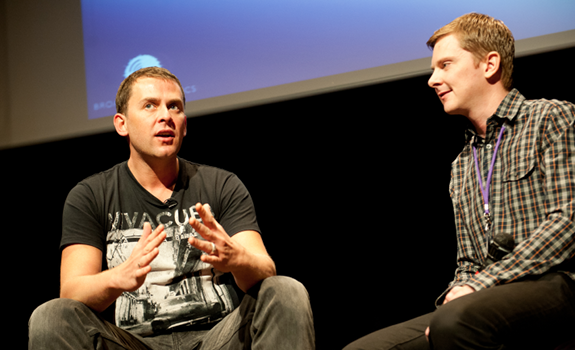
BBC Radio 1 midday personality Scott Mills (left) tells NEXTRADIO co-host Matt Deegan about his earliest radio experience, at a hospital station on the south coast, when he was just 12 years old (photo: NEXTRADIO)
Control your stage fright
The interview takes place one day after Nick Grimshaw kicked off with The BBC Radio 1 Breakfast Show. “He sounded less terrified than I thought he would”, Mills answers to the question what he thinks of Grimmy’s first early excercise. “I think that I would have sounded really scared – like I did on my first breakfast show, four days into being at Radio 1.” He recalls that Zoë Ball didn’t show up during that morning in 1998. “The producers did a segue for me, let me go outside, get some fresh air and think whether I wanted to do it. They said: we can always call Chris Moyles, and I went: no… So I did it. But I was terrified.”
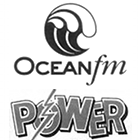 Start radio presenting early
Start radio presenting early
Scott Mills’ radio career starts at a hospital station when he is 12 years and still has a really high voice. “They would let me tell jokes [looks painfully] and do the Top 10 [smiles radio-freakish]. So I was kind of on air.” His first real radio stints are at Ocean FM and Power FM at the UK’s south coast at age 16. “I hung around there a lot in the weekend, and they put me on the air once – which, again, was awful. But then they gave me a few more shows.”
Increase radio experience exponentially
“It’s quite mad when you think about it now. I was young and I wasn’t that good.” Despite that, station manager Chris Carnegie (who is now head of BBC Radio Solent) offers young Scott an opportunity to learn by putting him on air between 1 and 6 in the morning. It is in the middle of Summer with many presenters going on holiday – in a time when there are 4 different services being produced from 1 studio location. “There was a lot of space to fill, so from that point of view I was very, very lucky.”
“I wanted to move on to better and bigger stations”
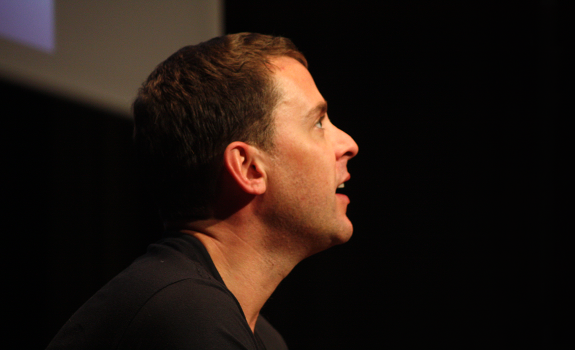
The legendary Piccadilly Radio in Manchester was Scott Mills’ first major market radio stint (photo: NEXTRADIO)
Learn from successful programmers
Throughout his career, Scott Mills manages to get job offers from established program directors, but most opportunities present themselves pretty unconventional. “I’ve had some very strange ways of being hired to other stations. I had to go and meet Steve Orchard [programmer of GWR FM] in Wootton Bassett, and it was all very cloak and dagger.” While working at that station in Bristol, he gets a call from Mark Story and Keith Pringle at Piccadilly Radio (split into CHR Key 103 and Oldie-based AC Magic 1152 in 1988). Mills is 21 years at the time. “I had to meet them halfway between Bristol and Manchester, so we had this kind of weird meeting outside Burger King on the M5… glamorous! They’ve all gone on to do really great things. Keith is now advising the Z100 breakfast show.” [Elvis Duran About Personality Radio: “Let It All Out”]
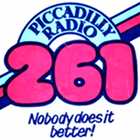 Switch radio jobs often
Switch radio jobs often
“I wanted to move on to better and bigger stations. The south coast was fairly small, Bristol kind of medium. Manchester felt huge to me at that time. It was tough, because I didn’t know one person.” Mills recalls that Piccadilly had many great personalities: “Steve Penk on breakfast, Danny Petroni on drive, and all Piccadilly Gold people – huge, huge stars, like James Stannage, Susie Mathis and Phil Wood. It was a really good time to be there.”
Head for bigger markets
In Manchester, it’s London calling – and to go for the country’s major radio market is a no-brainer for the ambitious young talent, who is part of the Heart 106.2 launch team in 1995. It feels “incredible” to be heard on this relatively big transmitter for a commercial broadcaster – but he probably spends just as many hours on traveling as on being on the air. “There was an awkward bit where I wasn’t released from my contract. So I would be doing 2 shows a week on Heart in London and 6 shows a week in Manchester, and that continued for 6 months.”
“I remember going into Heart, really late at night,
and doing all my demos on pre-fade”
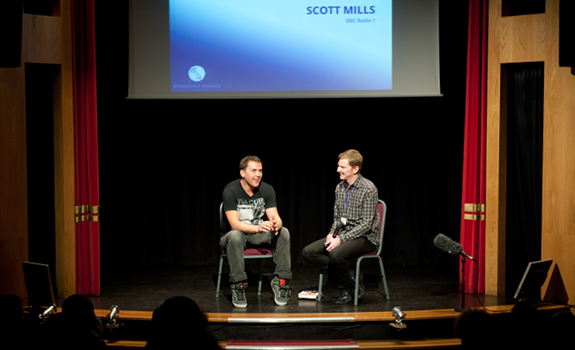
Scott Mills (left) sent countless demo tapes to and did several live auditions at BBC Radio 1 without a single result, until his dream job was offered to him – on a moment when he was just about to give up (photo: NEXTRADIO)
Keep sending audition demos
Being heard in the UK’s biggest radio market, however, isn’t an easy ride to his desired destination – BBC Radio 1. “I’ve sent so many demos to Radio 1, like you wouldn’t believe… like borderline harassment” (audience laughs). “I remember going into Heart, really late at night, and doing all my demos on pre-fade, playing young people’s music. It felt right to me. I was like 22; 23 when I was doing those demos, and it felt like the station I should be at.” Unfortunately, no-one at Radio 1 seems to share his belief, so it takes religious devotion and absolute determination to finally get there.
 Stay positive and persistent
Stay positive and persistent
“I’m talking about a period of 2 or 3 years where I would constantly send them stuff, and they were like: no, no, no. They really weren’t convinced at all. I went in to do a pilot, and I heard nothing back.” Eventually, he is about to give up. “I was like: this is going nowhere. I’ve been in there; I’ve done 2 or 3 pilots, I’ve met Andy Parfitt; this isn’t happening. And then it did. They obviously just heard something in probably the last demo that I was gonna’ send.”
Work towards prime-time airshifts
Scott Mills joins BBC Radio 1 in 1998 and is given The Early Breakfast Show between 4 and 7 AM. In 2004, he makes a move to more prominent parts of the program schedule: first to a weekend afternoon show, and just 6 months later to weekday early-evening show that he initially covers for Sara Cox. But as she never returns from her maternity leave, it becomes The Scott Mills Show. Besides that, he’s a holiday stand-in for benchmark programs like The Chris Moyles Show and The Radio 1 Chart Show. Mills is promoted to drive time (4-7 PM) before taking over the midday shift (1-4 PM) in 2012.
“When you get to Radio 1,
it’s like them giving you a blank sheet of A4 paper”
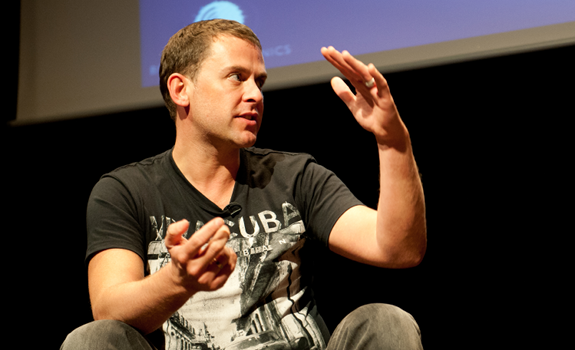
After many years of tight format radio, Scott Mills got complete ‘carte blanche’ at BBC Radio 1 (photo: NEXTRADIO)
Generate new ideas massively
“Radio 1 was completely different to any station I worked at before because I’ve worked in quite formatted radio. When you get into Radio 1, it’s like them giving you a blank sheet of A4 paper. If you come from that commercial radio 20-second link background, that’s quite daunting.” The presenter says it’s a great benefit to have a main producer who helps you develop your radio show, like Emlyn Dodd in his case. “Me and him will get together once a month and just write loads of stuff down. Innuendo Bingo was a pub idea that we’ve come up with a couple of years ago, which is still on now and has actually become more popular than ever.”
 Pull remarkable radio stunts
Pull remarkable radio stunts
The Scott Mills Show features a musical about the presenter’s life that is performed live during the Edinburgh Festival 2009, with the goal to interest Radio 1 listeners for the cultural event. “It appears to be quite Radio 4; quite arty farty and not for a young audience – but it is. There’s a lot of comedians you’d know and there’s a really young vibe. So we came up with the idea of Scott Mills, The Musical, obviously a tongue-in-cheek thing.”
Turn listeners into addicts
“It was kind of my life, but embellished. Me getting fired, me being drunk a lot, and me working at different radio stations…” Mills and his team love to create bits which make listeners tune in again and again. “It is a bit of a soap opera. There are lots of things you just randomly talk about every day; topical stuff. A few times a year we will have something like One Night With Laura or Laura’s Diary, which builds, and builds, and builds. If you listen every day, then you get the next bit of the soap.”
“Our first love is radio”
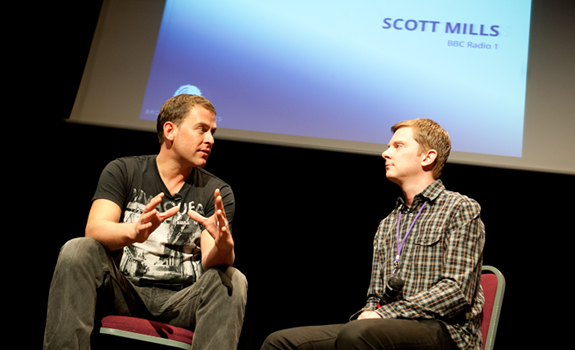
Even if social media and video footage are changing the face of radio, online and visual should follow broadcast and audio, says BBC Radio 1 midday personality Scott Mills (left) to session host Matt Deegan (photo: NEXTRADIO)
Put radio before online
Apart from hearing it on air, people can see it online, which has been a huge change. “Radio 1 is very keen to tie in Twitter, Facebook and the website. I think that’s important. When I joined Radio 1, you could only just text. It has evolved so much in that time.” Still, the team of The Scott Mills Show always starts with the radio show in mind: “I’m obviously a radio person and so is Emlyn. Our first love is radio, so we will always think of radio first and then we see it fit can work on another platform.”
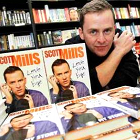 Build successful long-term teams
Build successful long-term teams
At the beginning of 2012, Scott Mills releases his first autobiography named Love You Bye: My Story. In the book, he writes that when his producer Emlyn Dodd would ever leave him, he would ‘hunt him down and kill him’. “I will, haha, we are a team for over 10 years. He knows how I work; I know how he works. We have a similar sense of humor, and what I like about him is that when something is a bit shoddy, whereas I might put it on air, he won’t do it.”
Credit your producer’s achievements
He describes Dodd as a perfectionist who will only do something after being 100% satisfied with the beginning, middle and end. To form an alliance with a great producer has been a revelation for the presenter: “All the way through my commercial radio life, I never had a producer; it was just me sitting in a room. I didn’t understand what producers did before the BBC. I was like: what can they add? If you find the right ones, they can completely change your show and make it what it is. I totally credit him for that.”
Read also:
- Personality (related articles)
- Social Media Run The Radio Show
- Elvis Duran About Personality Radio: “Let It All Out”
Stay tuned, follow us @RadioILOVEIT and click below to share this post:





Hi Gerald,
Thanks, glad you enjoyed it!
Are you still ‘radioactive’ yourself?
What I’ve found is that radio is fun, no matter how and where you do it – nationally or locally. Of course, it’s very cool to turn your passion into work. On the other side, it can become a job at some point.
Doing radio as a hobby can be a lot of joy as well.
Stay tuned,
Thomas
Really enjoyed reading this interview with Scott, feeling the passion he feels for radio is something we can share together, except in my life it didn’t end up the same way.